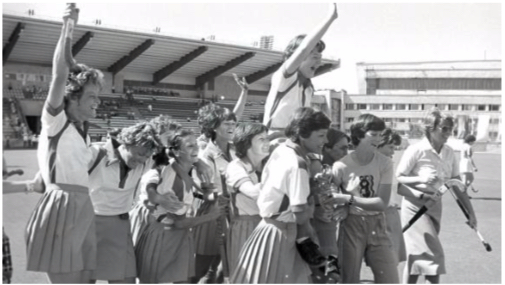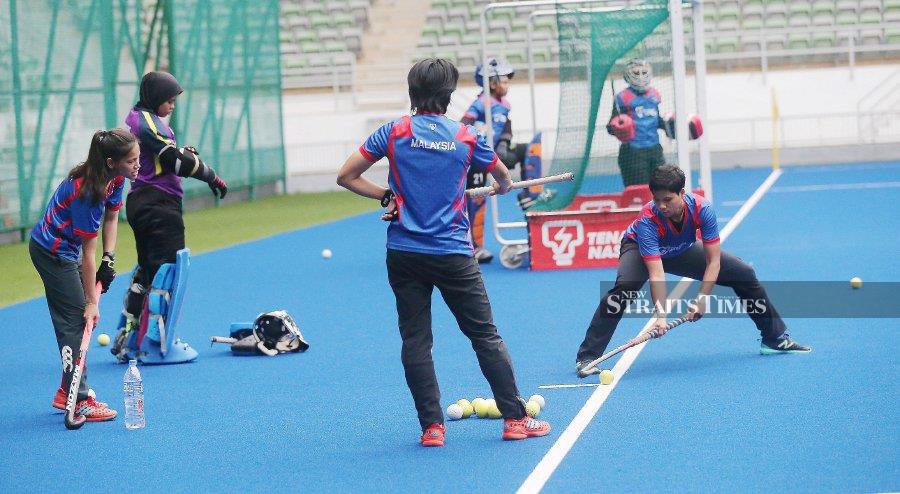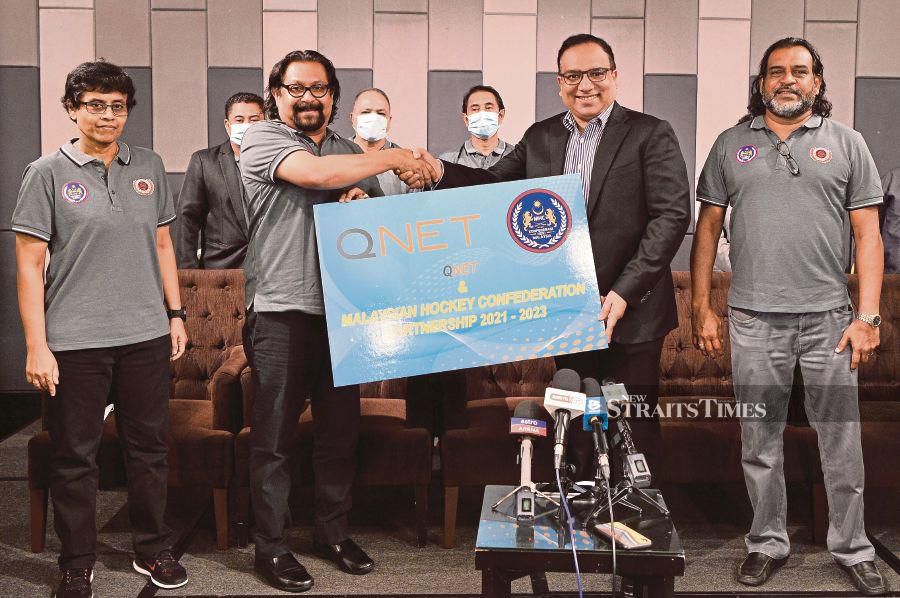News for 11 August 2020
All the news for Tuesday 11 August 2020
COVID-positive Mandeep shifted to hospital after oxygen level drop
Mandeep Singh tested positive for coronavirus last week after reaching Bengaluru for the national camp. - PTI
Indian hockey team forward Mandeep Singh, who tested positive for COVID-19, has been admitted to a hospital in Bengaluru after his blood oxygen level dropped but his condition is stable, the Sports Authority of India (SAI) said on Tuesday.
Mandeep and five other national players - captain Manpreet Singh, defenders Surender Kumar, Jaskaran Singh, drag-flicker Varun Kumar and goalkeeper Krishan Bahadur Pathak - tested positive for COVID-19 last week after reaching Bengaluru for the national camp, which starts on August 20.
Mandeep Singh becomes sixth Indian hockey player to test positive for COVID-19
“During night monitoring of vitals on August 10 (Monday) it was found that Mandeep Singh’s blood oxygen level was dropping below normal which indicated that he is moving from mild to moderate severity of COVID,” the SAI said in a statement.
“SAI authorities on campus took an immediate decision to shift him to SS Sparsh multispeciality hospital as a precautionary measure. His condition is currently stable,” added the statement.
The 25-year-old has played 129 games for India and scored 60 goals so far. He was a part of the gold-winning team at the 2018 Asian Champions Trophy.
According to SAI, the players contracted the disease, in all probability, while travelling to Bengaluru after a month-long break.
Their vitals are being checked four times everyday, the SAI stated.
More than 22 lakh people have been infected by the virus in India. The country has recorded over 45,000 deaths due to the dreaded infection so far.
Sportstar
‘We didn’t even have a national anthem’
Forty years on from one of the greatest Olympic shocks, Cathy Harris recalls Zimbabwe’s unlikely hockey gold
Cathy Harris
It is four years since the BBC delayed the ten o’clock news and more than nine million viewers tuned in to watch Great Britain’s women’s hockey team capture Olympic gold in a pulsating final shoot-out against the Netherlands.
Their historic triumph at the Rio de Janeiro Games was met with joy and celebration. Sadly, many of the squad will have to wait another year to defend their crown after the Tokyo Games were postponed to 2021 because of the coronavirus pandemic.
Theirs was an unexpected victory, though supported by the medal-winning pedigree of Great Britain’s Olympic programme. But on a beautiful summer morning 40 years ago at the Moscow Olympics, the victors Zimbabwe sprung a far more improbable sporting shock in the inaugural women’s Olympic event.
It was a first Olympic medal of any colour for the fledgling country; the team would not have even qualified for the Games in normal circumstances, let alone pick up a medal. But the United States-led boycott of the 1980 Olympics, in protest against the Soviet Union’s invasion of Afghanistan, left plans for a first six-team women’s hockey tournament in tatters. The best teams in the world ruled themselves out and the IOC was forced to invite countries who would not otherwise have qualified.
Zimbabwe had been independent since April 18, 1980, and Robert Mugabe had been leading the nation, formerly Rhodesia, for only three months when the IOC sent an invitation — 35 days before the opening ceremony.
“It was totally unexpected and completely out of the blue,” Ann Grant, the captain, said. “We weren’t in training, didn’t have a team and hadn’t a clue what to expect but for once in our lives we didn’t have to pay for a trip.”
Included were the identical twins and basketball internationals, Sandy Szechenyi and Sonia Robertson (née Chick). Grant comes from a sporting family — her elder brother, Duncan Fletcher, was a national cricket captain before coaching England to victory in the 2005 Ashes — but her side were woefully short of experience, ill-prepared and hastily assembled.
Their Olympic campaign began in bizarre fashion. Flying to pick up a flight with the Russian carrier Aeroflot in Lusaka, Zambia, they boarded an aircraft that had been used to transport meat. Coping with the overpowering stench, they were strapped in like paratroopers on wooden benches with ropes securing their luggage down the centre aisle.
At the athletes’ village in Moscow, the suffocating security brought home the magnitude of the occasion.
Grant said that they were like excited children when they first saw the Olympic Stadium. They had never seen an artificial surface before, let alone played on one. “We didn’t have the right shoes, because we’d only ever played on sunbaked grass pitches.” Cue “a mad dash” to find the right footwear. Making the most of life in the village, the Zimbabweans socialised with future Olympic champions Sebastian Coe, Daley Thompson and Steve Ovett, who all followed their progress.
In stark contrast to the Great Britain team in Rio, who had a 12-strong support staff, the Zimbabweans arrived with only a manager and Anthea Stewart, their player-coach. Dealing with injuries without a physio or doctor was a concern, but they got by on friendships forged with other teams, particularly Australia and New Zealand, who helped them to source expert medical treatment.
They drew with India and Czechoslovakia and beat Poland, the Soviet Union and Austria, their unbeaten run securing the gold medal and prompting wild celebrations.
But there was a problem: Zimbabwe did not have a national anthem to play at the medal ceremony. “They played the Olympic one instead,” Sarah English, the goalkeeper, said. “But there was the Zimbabwe flag and we were all just so proud.”
At a reception to honour medal-winners at the Kremlin, the team feasted on caviar for the first time in their lives.
“Suddenly everyone wanted to know all about Zimbabwe,” player Liz Chase recalled. “We had such fun meeting famous athletes — everyone wanted a part of us. I remember being filled with pride.”
Back home the stunning success captivated the nation. President Mugabe’s wife, Sally, promised each “Golden Girl” an ox. At the homecoming ceremony to mark their triumph, the squad waited four hours for the officials to arrive. When they did, they were solemnly presented with a small packet of meat wrapped in polystyrene.
The players freely acknowledged that they won without competing against the best in the world. But like many other athletes in Moscow in 1980, they seized their chance and earned their place in history. Those who witnessed the emotional medal ceremony and shared the joy of the players, officials and supporters would not deny the Zimbabweans their day.
Forty years on, the squad has dispersed to all corners of the globe — including South Africa, Australia and New Zealand — and despite the sadness of losing Chase to cancer two years ago, they remain a tight-knit group. “I grew up as a farmer’s daughter and could never have believed what we would achieve,” Grant said. “I still find the Olympic anthem inspiring and emotional.”
The Times
MHC to name new women's coach by September
By Jugjet Singh
The national body have short-listed two foreign and two local coaches for the job. - NSTP file pic
THE long wait could be coming to an end as the Malaysian Hockey Confederation (MHC) are expected to name the new national women's coach by Sept 1.
The national body have short-listed two foreign and two local coaches for the job.
It is understood that the foreign coaches are from Europe (England and the Netherlands).
The MHC have been looking for a candidate to replace former coach K. Dharmaraj since the beginning of the year.
Dharmaraj is now coaching in Indonesia.
"The identities of the four short-listed coaches will be revealed soon. I believe we have some of the best coaches in the world vying for the job," said MHC president Datuk Seri Subahan Kamal yesterday.
The MHC are also expected to name former national coach Paul Revington as technical director by Sept 1.
MHC deputy president Datuk Dr S. Shamala said: "The foreign coaches, vying for the women's post, will be interviewed again.
"They will have to present a detailed six-year plan to help the women's team become Asia's No 1."
Yesterday, the MHC conducted a workshop to work out plans and kick-start their National Hockey Development Programme.
"It will be similar to the 1Mas programme we had earlier, but there will be more accountability and monitoring this time. "Every state will have their monitoring mechanism, and the MHC will track their progress," added Subahan.
New Straits Times
Q-Net renews hockey sponsorship with MHC
By Jugjet Singh
MHC president Datuk Seri Subahan Kamal (front, second from left) and Q-Net managing director Kuna Senathirajah (front, second from right) at the Kinrara Resort in Puchong today. BERNAMA PIC
PUCHONG: Q-Net Malaysia yesterday renewed its hockey sponsorship for another three years to the tune of RM1.5 million.
They first came in as a Malaysian Hockey Confederation (MHC) sponsor in 2015, and had a RM 1.5 million deal for five years.
The new sponsorship is from next year to 2023.
"The MHC are pleased to announce that in these difficult times, Q-Net has renewed its sponsorship for another three years.
"The RM 1.5 million will be used for the development of hockey, as well as other team expenses," said MHC president Datuk Seri Subahan Kamal today.
Q-Net managing director Kuna Senathirajah, who played district-level hockey in Perak, said: "Even though our business is quite small in Malaysia as we are an international company, we want to give back to sports here.
"We are no strangers, as we had sponsored Malaysian badminton and football before," said Kuna.
When asked if Q-Net has plans to field a team in the Junior Hockey League (JHL) or the Malaysian Hockey League (MHL) next year, Kuna said it might be considered in the near future.
"We field our Quest International Universiti hockey team in Perak, and also have a team in the Selangor League. In the future, we might also form a JHL or MHL team."
Quest International Universiti in Ipoh, also belongs to the QI Group.
New Straits Times
PAHF in Review
2020 promised great Events; Indoors Qualifiers, Pan American Challenge, South American Championships, Junior Qualifiers, our annual Central American Development Championships and the big one, the Olympic Games. Lots of development projects and visits to assist our National Associations….
Suddenly in a blink, COVID-19 was here to stay!
Haiti was lucky. Coach Shiv Jagday from Canada was able to complete the development action, as planned in February.
In March we had to quickly adapt to the new scenario: the lock down!
We run more than 40 free webinars with + 2200 participants from 25 different countries, we worked with FIH Academy to deliver courses.
We tailored Education Programs to assist Facilitators to improve their presentation skills. The hockey family was now interacting online. NAs, athletes, coaches, umpires, technical officers, admins, we all got hold of these communications tools to keep our hockey activities ongoing.
“Open Spaces” brought opportunities for discussions, exchange of ideas and knowledge and experience sharing between pairs.
COVID-19 brought sad news to our hockey family. Emerson Velasquez Vice President of Nicaragua Hockey Federation died. He was a strong supporter of our sport and worked hard to introduce hockey in Nicaragua and in the Central American Games of Managua for the first time.
IOC announced the postponement of Tokyo 2020 to 2021 and the YOGs to 2026. This caused big problems with World Calendar and of course, to PAHF’s.
PAHF Board of Directors run their meeting online. One of the main topics discussed was COVID-19 situation in the region and the next steps to reschedule our Events.
PAHF Board received an update of PAHF Committees and Panels, specially from Health and Safety Panel that presented PAHF Nutrition Guidelines, an important document for Athletes and Team Staff.
Our Social Media and Digital Channels remain very active and they are the door to connect athletes, experts and to join our free Education activities, so stay tuned, more benefits are coming.
Argentina, Costa Rica and Canada went back to training
Barbados, Bermuda, Bolivia, Brazil, Chile, Colombia, Cuba, El Salvador, United States, Guatemala, Guyana, Haiti, Jamaica, Panama, Paraguay, Peru, Puerto Rico, Dominican Republic, Trinidad & Tobago and Venezuela, informed they are still locked down
Pan American Hockey Federation media release
Field Hockey Canada Hall of Fame Inductee – Dorothy ‘Dot’ Asuma
Former national team manager, Dot Asuma, led the charge, bringing international women’s hockey to Canada
By Josh Rey
Dorothy “Dot” Asuma paved the way for international women’s field hockey in Canada and for her contributions and dedications to the sport, is being inducted into the Field Hockey Canada Hall of Fame in the Builder’s Category.
A resident of the Sunshine Coast, Asuma was the women’s national team manager in the 1970s and was crucial in bringing the English National Team to Canada for a cross country tour in 1974. The English team landed in Halifax and the tour included stops in St. John’s, Winnipeg, Toronto, Calgary and Victoria among other Canadian cities. It was truly a cross-nation event.
“That was the one tour that we were able to do,” said Asuma. “Bring another team here, have our girls experience and watch how good some of these girls are. That English team was very good.”
That experience opened the program’s eyes to what truly elite international hockey could look like. That experience among others led the IFWHA Women’s World Championships to be held held in Vancouver in 1979 and the natural choice was to make Asuma the Chair of the organizing committee for the tournament. She convinced Canada and the International Field Hockey world that Canada can host a major Field Hockey Tournament. “When we started, it was just so huge,”said Asuma. “I couldn’t just get my head around it. And then as we started to pull it apart, put everything down, like ‘what do we do?’”
However it was Asuma’s dedication, leadership and positive attitude that helped make the tournament a success. It was the first major women’s international hockey games to be held in Canada and set the foundation in which to grow the sport domestically.
“We have instances where sometimes a person isn’t quite suited for what we thought she could do,”Asuma said. “We make changes and we did that and without any hard feelings whatsoever. We found that it’s better to face these things because we’ve got a long way to go with this tournament, and we’ve got to make sure that everybody’s in a position that they’re suited to be in.”
Field hockey brings people together and Asuma said that’s what made her fall in love with the game and she still does to this day. “I’m not as involved anymore, but I’ve been there and I’m always willing to help,” she said. Asuma’s induction into the Field Hockey Canada Hall of Fame is a celebration of a pioneer of women’s field hockey.
Watch a video presentation and interview with Dot here
The Field Hockey Canada Hall of Fame is supported by Gryphon Hockey
Field Hockey Canada media release